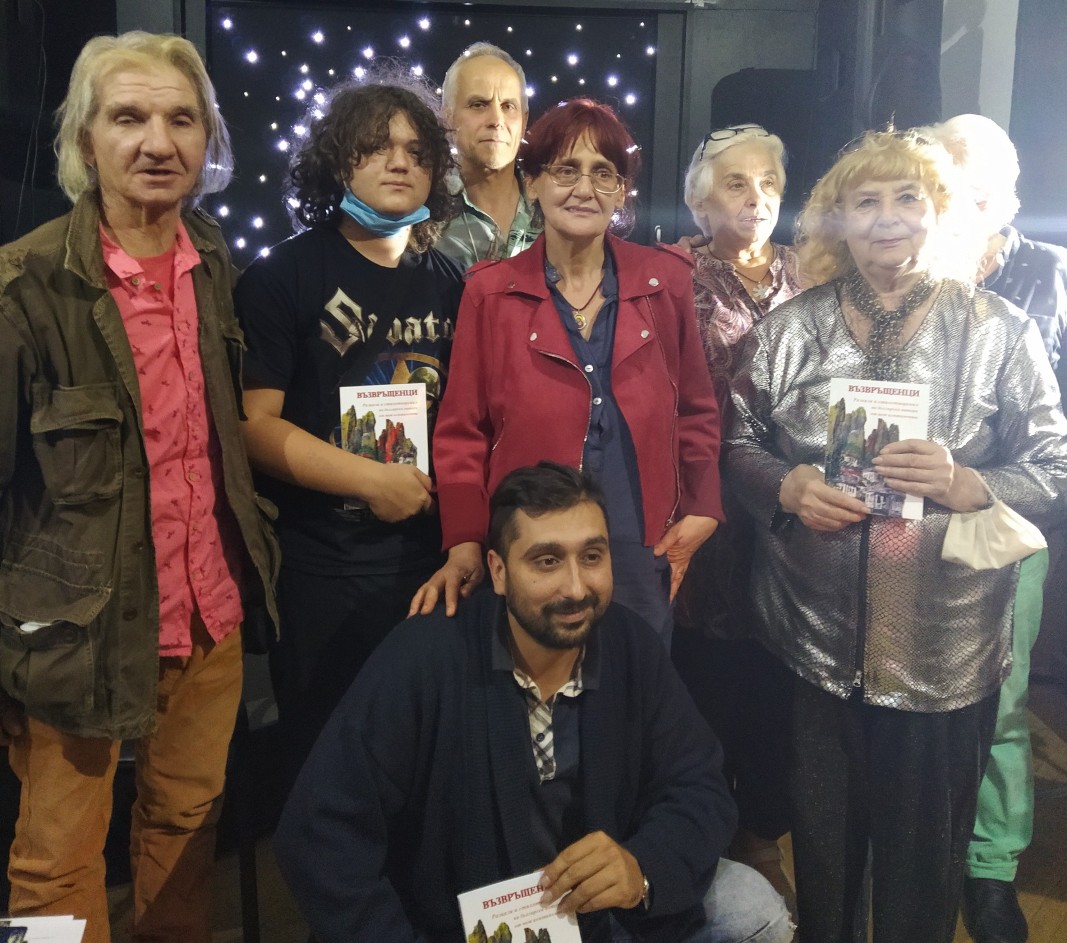Now that the world pandemic is making a physical return difficult, we can return home in our imagination, or with words. But what are Bulgarians, scattered around the world returning to? The answer comes in a collection of short stories and poems.
The publication of the fifth collection of short stories and poems by 68 authors, entitled “Returnees”, was sponsored by Bulgarians from all over the world. The word – returnees – is a throwback to communist times, when the people who fled the communist regime were branded “non-returnees” because they were leaving the country knowing full well they could never come back. Now people can return, though they are never the same.
“They are returning to the deserving past of Bulgaria and of Bulgarian culture at the same time,” says writer Marin Bodakov who presented the collection. “But they are also returning to the language and we can see what sweetness it is to use it, what exultation the authors of these texts feel in using rare ancient words and expressions.”
Tanya Panova has been working with words all her life, but it was only when she stopped working as a journalist that she ventured to present a work of fiction – her short story “How to weave a song”.
“The exact same way that you weave a rug,” says the author. “You have to take the base out of your mind, pick out the words with your heart and arrange them, because as the shuttle moves you have to sing your song. The living classic Anton Donchev says that there comes a time when Bulgarians have to start creating their own song. A song is an entire story, just like Bulgarian embroidery. It is the story of a clan, of a family.”

With his essay “Lament” 15-year old Yordan Ignatov won the national school competition “Return to the roots.” Himself a descendent of refugees from Eastern Thrace, Yordan tells the story of the return of his relatives, banished from their lands, along with thousands of others, after the end of the first Balkan War.
“Bulgaria today is very different from what it used to be,” Yordan Ignatov says. “People used to be oppressed but they stayed where they are waiting for the country to retrieve its territories. After communism fell they were able to travel to other countries. Some of those who emigrated now want to come back but what is stopping them are the substandard politicians and the low pay. Others don’t want to live here and that makes me a little sad. I wish I could change their minds and help them see Bulgaria through their own eyes, to invest, to do something and see for themselves that they might well succeed.”
Left far from home due to the travel restrictions, the Bulgarians scattered in other countries are conveying messages inside language capsules, Marin Bodakov says.
“They all offer different strategies for overcoming sadness, for overcoming nostalgia, for making sense of the bridge between the place they now live, and their country of birth.”
Photo: Diana Tsankova
The poster exhibition "The Armor of the Thracian Warriors" opens today in Kazanlak as part of the Festivals in the Valley of the Thracian Kings. It is the result of a joint scientific project of the National Archaeological Institute..
A school with the purpose of overcoming stereotypes about graffiti as something ugly, dirty and incomprehensible has been operating in Varna since 2019. Often the attitude towards graffiti artists is towards "people without..
The Bulgarian Antarctic Base was founded in 1988 and since 1993, by decree of President Zhelyu Zhelev, it has been named after St. Kliment Ohridski. Since then, Bulgarian Antarctic scientists have been conducting numerous experiments in the fields of..
Triumph , the film by the directorial tandem Kristina Grozeva and Petar Valchanov, won the grand prix for feature film at the 42 nd Golden Rose..
The second edition of Street Music Fest, a festival of street music and authentic urban culture, is taking place in the capital's Slaveykov Square from..
After 17 successful performances in Europe, the popular literary format ''Fairy Tales Post Box'' continues its European tour with 11 more locations. It..

+359 2 9336 661
